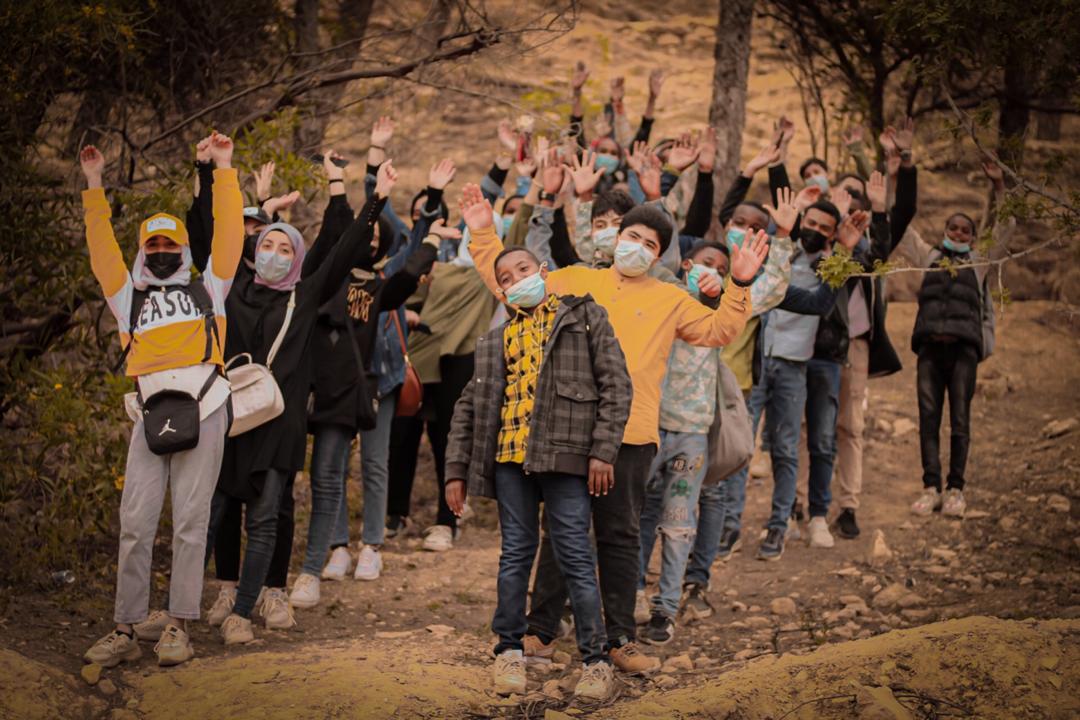
Launched in late 2020, the two-year Skills for Tomorrow (SFT) program is equipping 105 girls and boys ages 13–15 with English language, leadership, computer, and soft skills they need to access scholarships and study abroad opportunities, compete in global job markets, and engage in civic life with confidence and self-awareness.
The youths live in seven communities across Libya (Tawergha camp in Tripoli, Gharyan, Albaydah, Sebha, Jalu, Yefren, and Misrata), which are characterized by a lack of infrastructure, access to nontraditional educational opportunities, and safe spaces where youth are able to come together and be creative.
A program like this is much needed, says 15-year-old Salha Saleh, reflecting on the lack of afterschool and extracurricular opportunities in his community, Jalu. “Since I was a kid, I have been waiting for an opportunity like this,” he said.
This is the first formal round of the SFT, after a pilot version implemented in 2018-2020 demonstrated this program’s potential. The pilot, also implemented with funding from the U.S. Department of State, was run in five marginalized communities across Libya and used an adaptation of Amideast’s Skills for Success® employability curriculum for youth still in secondary school to great success.
Already, there has been a significant improvement in the students’ English level and their leadership potential, as well as their sense of civic duty to their communities. The improvement has spilled over to their performance in school. Abdulbari Nouh, from the Tripoli cohort, reports that he now gets full marks in his English class and is motivated to continue to work hard since he still has a lot to learn.
In addition, SFT is preparing the students for the labor market and its changing needs. Libyan youth still default to careers in medicine and engineering, while a spectrum of jobs in technology, public service, creative fields, and entrepreneurship remains unexplored. The program seeks to raise the teens’ awareness of these alternative career paths, as well as opportunities for cultural exchange such as the U.S. government-funded Kennedy-Lugar Youth Exchange and Study (YES) and MEPI’s Tomorrow’s Leaders programs.
An exciting aspect of the program is the role of Libyan alumni of Amideast’s Professional Certificate in English Language Teaching (PCELT) program. Coming from diverse regions of Libya, these PCELT-certified teachers also serve as local mentors able to credibly present to marginalized youth a worldview much larger and diverse than the one in which they primarily operate.
